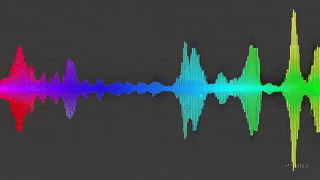
The Other side
book and lyrics Paul Western Pittard music and lyrics Yuri Worontschak
The Other side
book and lyrics Paul Western Pittard music and lyrics Yuri Worontschak
The Other Side
Another musical by the Lizardry pair, Yuri and Paul. Osten is a internet super fan but afraid to leave his own apartment. He lives a vicarious life through Marika, a Euro- pop star. But when Marika apparently dies he finds himself in an emotional vacuum. The musical is a story of freedom, obsession and love in a post truth age. What's it really like on the other side?
The Other Side
Another musical by the Lizardry pair, Yuri and Paul. Osten is a internet super fan but afraid to leave his own apartment. He lives a vicarious life through Marika, a Euro- pop star. But when Marika apparently dies he finds himself in an emotional vacuum. The musical is a story of freedom, obsession and love in a post truth age. What's it really like on the other side?
Shift Control
Shift Control


y u r i.com.au
y u r i worontschak

y u r i.com.au
y u r i worontschak

GenerationOnDemand.com
"Generation on Demand" is a prequel to Yuri Worontschak’s musical "My Voice," following the journey of Bohdan Sajwa, a boy whose life is forever altered after losing his father when their apartment was bombed. This tragedy shatters Bo’s innocence, leaving a lasting impact on his life.
Now in his twenties, Bo lives in a small, cluttered apartment in Kyiv, where he has become withdrawn and solitary. Like his father, he works in IT, but the trauma and isolation brought on by the pandemic have confined him to his home. His only connection to the world is through his computer, specifically his father’s old Mac—an emotional relic of a lost time and love.
Bo works for "GenerationOnDemand.com," a company that trains AI to create art and music sold through subscription services. Despite maintaining these systems, he is deeply troubled by the idea of machines replacing human creativity. This disillusionment reignites his long-abandoned dream of composing music, a passion sidelined by grief and the struggle for survival.
Unable to suppress his discontent, Bohdan begins sabotaging the AI models, corrupting the data to inject "terrible music" into the system. Although his act of rebellion is short-lived, it attracts a community of like-minded creators online. However, his defiance doesn’t go unnoticed; he is caught, fired, and pushed into deeper isolation.
In his despair, Bohdan turns back to music. He channels his pain and memories into a symphony that captures his journey, defiance, and hope—a testament to the resilience of human creativity in an increasingly automated world. This final act becomes his ultimate statement: human artistry will not be silenced by technology.

